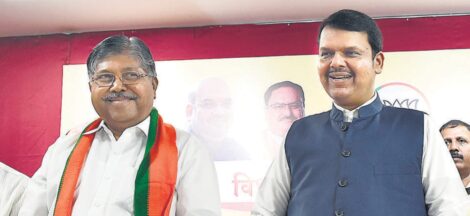By
Barun Das Gupta
China
has suffered two major diplomatic setbacks in Asia within the span of one
month. The first was its failure to get its protégé Mahinda Rajapaksa appointed
as Prime Minister of Sri Lanka. The second was the defeat of its friend Abdulla
Yameen in the presidential election of Maldives at the hands of Ibrahim Mohamed
Solih, a close friend of India.
In
the presidential election in Maldives held on September 23, Yameen, who had
turned the island nation into a vast prison house by arresting all opposition
leaders and members of the higher judiciary and suppressing all dissent, failed
to be re-elected, despite rigging. Solih won hands down, securing 58.3 per cent
of total votes polled.
Sri
Lankan president Maithripala Sirisena dismissed his Prime Minister Ranil
Wickremesinghe on October 26 and appointed Mahinda Rajapaksa, the man he had
defeated in the 2015 presidential election, in his place. The development came
as a denouement of a rumour spread by unknown persons that India’s external
intelligence agency RAW had hatched a plan for assassinating Sirisena. Who
planted and spread the rumour is not known but the intention was clear: sow
distrust and discord between India and Sri Lanka.
The
arbitrary dismissal of Wickremesinghe plunged the island nation into a crisis,
with both Rajapaksa and Wickremesinghe claiming to be the prime minister.
Ultimately, the crisis was resolved when the Sri Lankan Supreme Court held
Sirisena’s decision to be unconstitutional and re-appointed Wickremesinghe as
president. When the House met, supporters of both ‘prime ministers’ clashed.
Chilly powder was freely used, but Wickremesinghe won the trust vote. Unable to
stomach his failure to install Rajapaksa, Sirisena dissolved parliament on
December 9. Fresh elections are to be held on January 5 next year. The outcome
of the result will show whether the new government will pursue an independent
foreign policy or be amenable to China’s pressure tactics.
Meanwhile,
the question that arises is: why Sirisena, who started his innings as president
as a friend of India, turned so much against India that he wanted to cut out
New Delhi from the projects India was implementing in Sri Lanka, some as joint
ventures with Japan? The apparent reason is that today Sri Lanka finds itself
in a debt trap. Its huge debt to China (estimated at $1.5 billion) is just
unrepayable. China is using this to arm-twist Colombo in toeing an anti-India
line. Unless some friendly countries come to the rescue of Colombo by enabling
it to repay at least a part of the Chinese debt, Sri Lanka will have little
leeway to withstand Chinese pressure.
In
the case of Maldives, India has actually come to its rescue. Maldives’ total
debt to China is around $3 billion. This is a far bigger loan than Sri Lanka’s
by a country which is just a speck compared to Sri Lanka (65,610 sq. kms.
against 298 sq.kms.). President Solih visited New Delhi in the middle of this
month. India announced a financial assistance of $1.4 billion to the island
nation, knowing fully well that it will be used to repay a part of the Chinese
loan. India and Maldives also agreed to cooperate closely in maritime security
in the Indian Ocean. They will also undertake coordinated patrolling and aerial
surveillance. The strategic significance of this will not be lost on China.
There
has been some unfair criticism in some quarters of India’s decision to extend
financial assistance to Maldives. The question raised is why should Indian
tax-payers’ money be paid to China through Maldives? In the larger context of
India’s strategic need to contain China and wean away its smaller neighbours
from the influence of Beijing, this is a small price to pay. Depending on which
government is voted to power in Sri Lanka next month, India may have to help
Colombo in loosening China’s vice-like grip on the country. This will be
necessary in India’s own interest.
President
Trump’s decision to withdraw all US troops from Afghanistan also creates a
piquant situation for India. Pakistan’s interference in Afghanistan will grow
and through Pakistan China will try to get an entry into that country, which is
the gateway to the Central Asian countries that were once constituent republics
of the former Soviet Union. These countries are rich in mineral resources.
India
will also have to give more attention to Nepal for mending its fences with
Kathmandu. Nepal has been drifting away from India and getting closer to
Beijing. The drift away from India has to be reversed. This is especially
necessary in view of the continuous Chinese military build-up in Tibet, close
to the international border in the high Himalayas. India will have to play a
more aggressive diplomacy vis-à-vis China in its immediate neighbourhood,
keeping in mind that the Chinese challenge to India is not only military but
also economic.
China
is reportedly building facilities in Pakistan for making submarines and other
military hardware. This adds a new dimension to India’s security scenario.
Winning new friends and deepening ties with old friends has become imperative
for India. As the saying goes, to be forewarned is to be fore-armed. (IPA Service)
The post China Suffers Two Diplomatic Setbacks In Asia appeared first on Newspack by India Press Agency.


